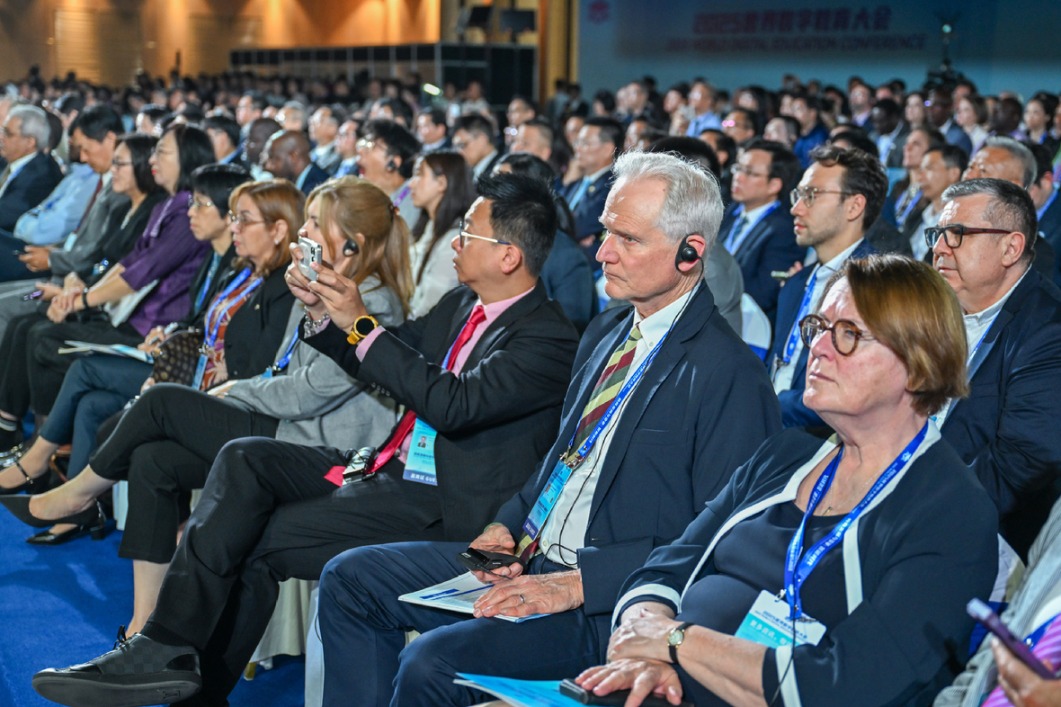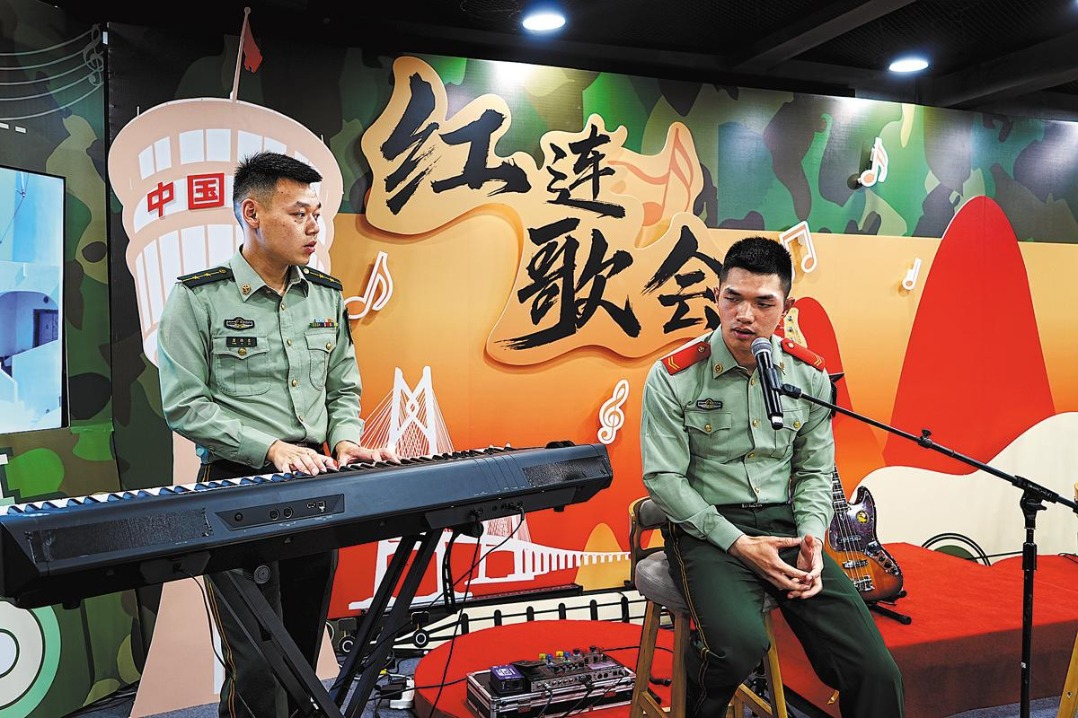Guideline to regulate use of artificial intelligence in schools
Educators, parents urged to ensure age-appropriate utilization of new tools


Primary school students in China are prohibited from independently using artificial intelligence tools that generate open-ended content, while educators must ensure that AI can complement but not replace human-led teaching, according to a new guideline issued on Monday by the Ministry of Education.
The 2025 edition of the guideline, released by the ministry's committee on basic education teaching guidance, sets standards for the use of generative AI in primary and secondary schools. It emphasizes age-appropriate use, risk prevention and ethical considerations as AI tools such as ChatGPT and DeepSeek are gaining momentum in classrooms.
The guideline aims to standardize the ethical and appropriate use of generative AI while addressing concerns such as privacy risks, academic integrity and overreliance on technology.
Under the guideline, primary school students are not allowed to independently use open-ended AI content generators, which could allow them to use AI to do their assignments for them. Middle school students may explore the logical structure of AI-generated content, while high school students are permitted to engage in inquiry-based learning that involves understanding AI's technical principles.
A senior official with the committee said the restrictions are meant to ensure age-appropriate use of AI and prevent younger students from becoming overly dependent on the technology.
Students are also banned from submitting AI-generated content as original work, using AI to cheat or relying too heavily on the technology for creative tasks without applying critical thinking abilities.
The guideline tasks educational authorities with formulating localized AI management policies, establishing data protection rules, launching ethical review mechanisms and creating dynamic "whitelists" of approved AI tools. The document underscores the importance of balancing technological innovation with students' cognitive development and maintaining human-centered pedagogy.
Teachers are required to ensure that AI plays only a supplementary role in education. Direct use of AI for evaluating students, answering exam questions or processing sensitive data — such as personal information — are strictly prohibited.
Schools are urged to adopt differentiated AI strategies, avoid a one-size-fits-all approach and strengthen data security measures. The guideline also advises parents to supervise their children's AI use, protect their personal information and prioritize emotional engagement over reliance on technology.
The document outlines plans to establish a tiered AI education system covering all levels of primary and secondary education. Students will progress from basic cognitive understanding in primary school to deeper analysis in middle school and applied innovation in high school.
"AI is a strategic technology driving a new wave of technological and industrial transformation," a senior ministry official said. "It has already reshaped everyday life and set education on a new course of reform and development."
The official said developing AI education in elementary and secondary schools is essential to align with global technological trends, support national development and cultivate future innovation talent.
At the primary level, the focus will be on fostering interest and offering hands-on AI experiences. In middle school, students will delve into AI logic and problem-solving, gaining theoretical and practical understanding. At the high school level, students will apply what they've learned to design and optimize AI models while developing interdisciplinary and systems-level thinking.
The guideline also offers examples of how generative AI can enhance education. For students, AI can enable personalized learning, interactive inquiry and deeper reading comprehension. It can also provide mental health support and help students with special needs overcome learning barriers.
For teachers, AI can assist in lesson planning, classroom instruction, tutoring and research, helping improve efficiency and resource use through data analysis and content generation. School administrators can use AI for document drafting, data processing and decision-making to improve governance and operations.
The ministry said it will increase investment in AI education infrastructure and gradually establish AI education bases in primary and secondary schools. It also plans to offer more training programs for teachers to improve their understanding and use of AI tools.
Support for rural schools will be strengthened, the official said, with greater teacher exchanges and resource sharing aimed at bridging the AI education gap between urban and rural areas.
Yu Dongdong, the mother of a sixth-grade student in Beijing, said she began restricting her son's use of Doubao, ByteDance's large language model, after noticing how advanced his AI-assisted essays had become.
"The essays were based on his real experiences, but they had such clear themes, beautiful language and perfect structure that frightened me a little," she said. "They didn't sound like something a child of his age could write."
Yu said her son cannot use AI-generated content during school tests, and she feared the tool might make him lazy. She now encourages him to write his own essays first, then compare them with AI-generated versions and learn from the differences.
"This way, he keeps the human side — his flaws, his innocence," she added.
- Guideline to regulate use of artificial intelligence in schools
- Intl service trade fair to open in September
- China hosts SCO's trade union meeting
- 'Spidermen' keep tourist attraction clean
- Deliveryman recognized as model worker for dedication to customers
- Experts stress role of critical thinking in education




































